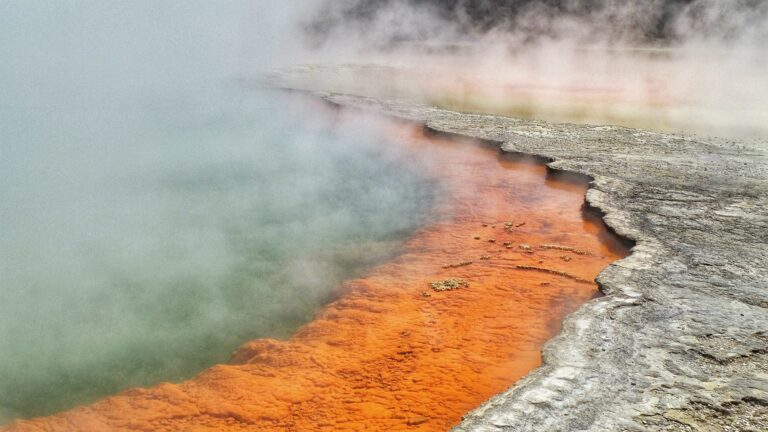Project Description
Agriculture is a major source of greenhouse gas emissions in the UK. In Northern Ireland, agriculture remains the highest-emitting sector and the only sector to have shown an increase since the base year of 1990. Overall, the UK’s agri-food industry is responsible for almost a quarter of the country’s greenhouse gas emissions.
Geothermal energy provides an abundant source for reliable 24/7, always-on energy, which ranges from deep high temperature applications for electrical power generation to lower temperature systems for Direct-Use Geothermal Energy (DUGE) applications for heating & cooling.
DUGE has significant potential in a range of end-use sectors, in particular for the agri-food sector [1]. In food production, DUGE can be used to create the optimal environment for growing produce and support post-harvest preservation (drying, dehydration, cooling and cold storage) as well as increase productivity in greenhouse farming, aquaculture, and food processing. In food processing, DUGE can yield high rates of decarbonisation in processing industries with high heat demand that require pasteurisation (e.g. dairy industry), sterilisation (e.g. drink & food canning) or fermentation & distillation (e.g. beer, wine and spirits), which form key agri-food industries across Northern Ireland.
Delivering on the national Net Zero Targets requires significant decarbonisation of the UK agri-food sector. Integrating DUGE into existing farming and processing practices to replace fossil fuels and using DUGE to open new markets for diversifying the UK agri-food sector away from carbon-intensive practices towards new markets, such as an expansion of horticultural production, holds the promise of achieving these targets.
While Direct Use Geothermal Energy resources are widely available across the UK and the application of DUGE in the agri-food sector has been well established in other countries, the successful adoption of DUGE across the UK agri-food sector still requires better functioning markets as well as coherent policy frameworks [2,3].
Using Northern Ireland as a case study, the project will draw on the expertise from collaborators across the areas of Earth & Environmental Sciences, Social Sciences, Agri-Food, Finance, Energy Policy and Management to develop and co-create a joint proposition for the application of Direct-Use Geothermal Energy for the UK agri-food sector. The project will engage with stakeholders across the agri-food sector to co-analyse the opportunities and challenges for DUGE and to jointly develop tailored implementation approaches. In doing so, the project will combine the technical evaluation of available DUGE resources for the agri-food sector with active social science research highlighting current barriers for the uptake of DUGE across the agri-food sector and evaluating market-forming strategies and underpinning financial instruments to realise the potential for DUGE applications across the industry.
CANDIDATE BACKGROUND
First degree in geology/earth sciences, environmental science, agricultural sciences or similar with an interest in social science and interdisciplinary research ; scientific writing and presentation experience; experience in stakeholder engagement and/or science communication desirable; strong organisation skills and motivation to tackle complex problems.
Photo by Hannah Wright on Unsplash
Supervisors
Ulrich OfterdingerPrimary Supervisor: | Profile: Ulrich Ofterdinger Email: U.Ofterdinger@qub.ac.uk Institution: Queen's University, Belfast Department/School: School of Natural and Built Environment |
Jean-Christophe ComteSecondary Supervisor: | Profile: Jean-Christophe Comte Email: jc.comte@abdn.ac.uk Institution: University of Aberdeen Department/School: School of Geosciences |
Additional Supervisor: | Prof. Mark Palmer, Queen’s University Belfast, Management School Email: M.Palmer@qub.ac.uk
Chris Johnston, Agri-Food and Biosciences Institute Email: chris.johnton@afbini.gov.uk |
References
[1] International Renewable Energy Agency (IRENA) (2022), Powering agri-food value chains with geothermal heat: A guidebook for policy makers, International Renewable Energy Agency, Abu Dhabi, https://www.irena.org/publications/2022/Jun/Powering-Agri-food-Value-Chains-with-Geothermal-Heat
[2] Palmer, M., Ireland, J., Ofterdinger, U., & Zhang, M. (2022). #NIGeothermalWeek: Defining the vision for geothermal energy in Northern Ireland. NI Department for the Economy, 52pp, https://www.economy-ni.gov.uk/publications/net-zeropathways-building-geothermal-energy-sector-northern-ireland
[3] Palmer, M., Ireland, J., Ofterdinger, U., & Zhang, M. (2022). Net Zero pathways: Building the geothermal energy sector in Northern Ireland – Report. NI Department for the Economy, 137pp, https://www.economy-ni.gov.uk/publications/net-zeropathways-building-geothermal-energy-sector-northern-ireland
QUADRAT Themes
- earth-systems
- environmental-management
Partners
To be confirmed






















































